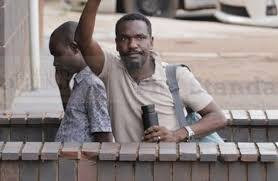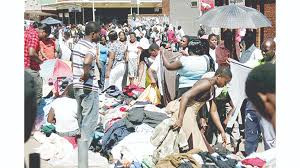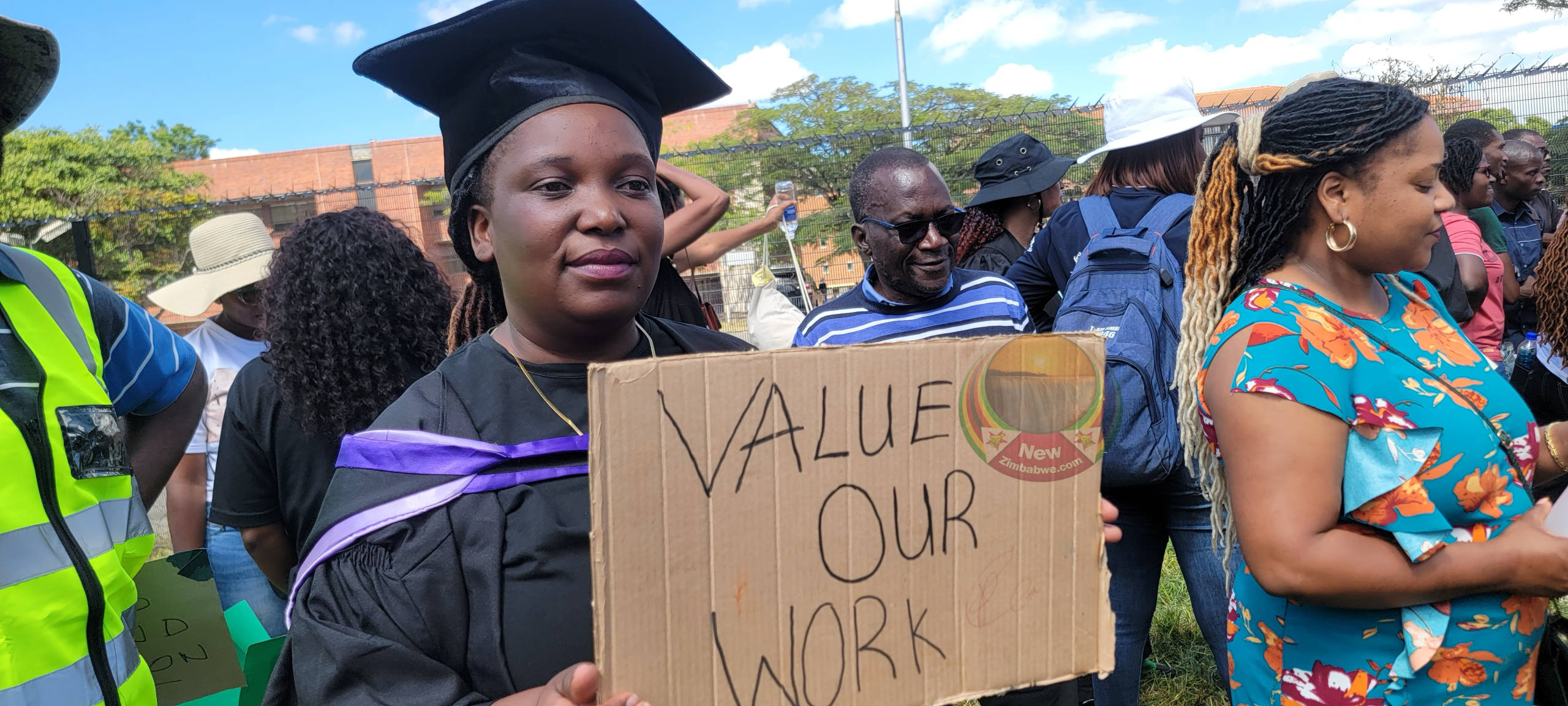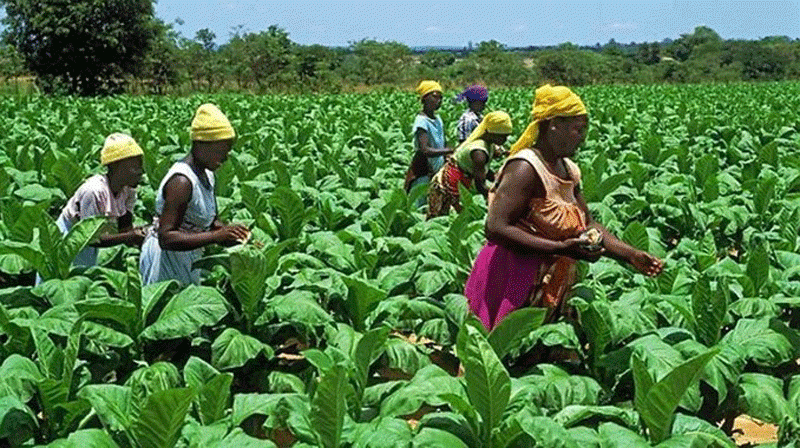I HAVE been following with keen interest on cases of child sexual abuse in Zimbabwe. The Zimbabwe Republic Police produced statistics of child sexual abuse and the record is a cause for concern.
JOHANNE MHLANGA
These cases reflect a sordid and gory picture of the state and safety of our children, particularly the girl-child. Child sexual abuse is an internationally recognised crime against humanity. It is a gross violation of the girl-child’s fundamental rights.
Child sexual abuse is inimical to development and predisposes the girl-child to health complications such as HIV and Aids, fistulas etc.
The extent of the problem According to the law enforcement authority, more than 100 girls are sexually abused every day, and this is more than any other time in the history of the country. These statistics are a tip of the iceberg.
There are other cases that are not reported due to complicity of care givers/ parents, in which caregivers prefer to have an out-of-court settlement with child sexual abusers.
Keep Reading
- Chamisa under fire over US$120K donation
- Mavhunga puts DeMbare into Chibuku quarterfinals
- Pension funds bet on Cabora Bassa oilfields
- Councils defy govt fire tender directive
It is not reflective of all the cases given the situation in the country where there are hard-to-reach areas where such cases go unreported. Take for example, Mabee, Garahwa, Chinyamukwakwa in Chipinge, Dotito and Makande in Kariba, among other such areas in the country.
What is clear is that some cases are not reported to police. Other cases are swept under the carpet by parents in order to safeguard family relations. It is a fact that some cases of child sexual abuse are perpetrated by relatives, known people and even parents of the victims.
As a result, there is more than what meets the eye. Against this backdrop, lies a girl-child who has to bear the brunt of suffering for the rest of her life. Sexual abuse has serious consequences and the implications are dire. From health, physical and psychological trauma to emotional and cognitive challenges. Such is the extent of child sexual abuse.
Day in, day out, newspapers carry stories of child sexual abuse cases before the courts and some that are swept under the carpet.
For example, The Mirror of August 27, 2016 carried a story titled Grade 7 pupil exposes rape ordeal through school essay. National police spokesperson Senior Assistant Commissioner Charity Charamba was also quoted some months ago indicating that sexually abused children, whose images had gone viral on social media, were identified. This is just a sample of child sexual abuse cases.
Reflections on our society What is of significance with most of the child sexual abuse cases is that they are committed by relatives or neighbours, who should be at the fore of safeguarding and protecting children in totality.
Sexual abuse of the girl-child is so sadistic and dehumanising. It is terror. It is a weapon to cow women into submission and to cow society into submission. But, what is important here is to reflect closely with a critical eye on our society.
There are many theories that try to explain the push factors for one to sexually abuse children, but they are never a justification for such a dehumanising act. What is very clear is that the ubuntu concept has been relegated to the dustbin in our society.
Our society is now suffering from moral decadence much to the chagrin of the girl-child. Whatever explanation to the causes of child sexual abuse, it is a stubborn reality and a fact that the pillars of social order and civilised conduct have gone to the dogs. It is difficult to comprehend and really reflect.
What is clear is that our society is now depleted of probity, ethics and principles. Our society is now morally and ethically threadbare.
Men, in particular, have lost the conscience that should be the guiding principles of conduct. The traditional code of conduct that a child belongs to the community has since been thrown into the abyss.
The underlying problem is lack of moral principles and ethically sound mindsets. This is the genesis of all evil against the girl-child. It is difficult to comprehend how a trained teacher ends up abusing a student? It is difficult to comprehend how a neighbour ends up sexually abusing another neighbour’s daughter?
What has happened to the moral fibre that defines humankind? What has happened to the common law and Biblical law that you shall show steadfast love to thousands of those who love me and keep my commandments?
And, “You shall not covet your neighbour’s house, you shall not covet your neighbour’s wife, or his manservant, or his maidservant, or his ox, or his ass, or anything that is your neighbour’s.”
There is a clear reflection of the inadequacies of humanity today. How does one justify bedding a minor? How does one justify raping a woman? Is it a sign of patriarchal arrogance? No! Patriarchy is embedded in the need to respect humanity.
There is no substitution of love for humanity. But the question is: What has befallen our society? Where is our society going? Is this the society we want as human beings? A society where the girl-child is at the messy of vampires. A society where men choose to experiment on innocent souls. There is something wrong indeed.
What is the world coming to? The social fabric of Zimbabwe as a nation is at risk. There is a national security threat on the girl-child. It appears that Zimbabwe is in a golden age of moral disarmament. There is moral barbarism. The level of moral decadence worries all that cares.
Agenda for collective action Child sexual abuse has far reaching health, social, economic and political implications for the girl-child and her community. It truncates a girl’s childhood, creates grave physical and psychological risks, and robs her of internationally recognised human rights.
The greatest task that confronts professionals, law enforcement agents, traditional leaders and the rest of the community is to put their heads together and strategise on how the child sexual abuse scourge can be ended.
This rot requires all and sundry to work together and create a conducive environment for the girl-child. Ending child sexual abuse requires the participation of parents, the religious sector, community, traditional leaders, professionals and everyone who cares.
It calls for a multi-faceted approach focused on the girls, their families, the community and the government. The approach should be comprehensive and holistic in nature. The following are some of the measures that can be put in place to arrest social evils within our midst:
1. Putting in place deterrent measures There are various laws in place in Zimbabwe that are meant to safeguard children. However, there are serious gaps that stifle efforts to protect the girl-child.
For example, child marriages were prohibited at law, but there is a contradiction with the age of sexual consent.
This results in paedophiles taking advantage of the girl-child. Again, there is no deterrent law for child sexual abusers or rape cases in general. For example, cattle rustling has a jail term of more than 19 years, while a rape case jail term is below 15 years.
This is an indication that there is lack of seriousness. Does it mean that an animal is a more important than a human being? The Constitution of Zimbabwe Amendment No 19 (2013) section 81 provides clearly the rights of children.
However, there is need to realign laws that are at variance with the Constitution’s provisions. What is clear here is that there is need for deterrent laws.
2. Educating parents and the girl-child on child sexual abuse Concerted efforts and resources should be invested in educating parents, community, traditional leaders and the girl-child on sexual abuse.
Child sexual abuse issues should be mainstreamed in all interventions by the government, non-governmental organisations (NGOs) and churches in their projects and services. It is paramount to ensure that information on sexual abuse and its dangers is disseminated in vernacular languages in all the communities.
Traditional leaders should be empowered with knowledge on child sexual abuse so that they also play their part in the fight against the scourge.
3. Training of law enforcement agents e.g. police Law enforcement agents should be thoroughly trained to deal with sexual abuse cases.
At times, the time taken by police to arrest a culprit leaves a lot to be desired. In some cases, police officers show lack of knowledge on what they should do once a sexual abuse case has been reported to them.
It is critical that police officers are trained on how to respond and handle cases of sexual abuse. They should be handled just like cases of armed robbery. Yes, there is the Victim Friendly Unit, whose office bearers are trained to deal specifically with children’s issues, but there is a gap that exists.
More often than not, some police posts are not manned by officers from the Victim Friendly Unit. This makes it difficult for officers doing generic work to understand the gravity of the child sexual abuse cases. Child sexual abuse is a threat to national development. One girl-child sexually abused is too many!
4. Prioritising the hard-to-reach areas in raising awareness on child sexual abuse. Child sexual abuse takes place anywhere in the country. However, there is an unfortunate situation that is very clear in Zimbabwe.
More often than not, many NGOs in child protection programming are concentrated in easy-to-reach areas, leaving those children in hard-to-reach areas more vulnerable.
The situation is compounded by the fact that the government is also faced with a massive ocean of challenges, for example, lack of resources — both human and financial resources, which makes it difficult to reach to the remotest parts of the country.
It is in those areas that child sexual abuse cases are swept under the carpet. It is in those areas that child sexual abuse crimes are not reported and the girl-child suffers in silence. There is, therefore, a need to prioritise hard-to-reach areas.
For example, authorities should have deliberate policies that deploy NGOs to the most needy and remote areas rather than having them concentrated in Harare, Mutare, and other easy-to-reach areas.
It is a fact that despite concerted efforts by the Department of Social Welfare and the Ministry of Primary and Secondary Education to fight sexual abuse of children, there are gaps in their approach.
For example, the Department of Social Welfare has very little presence in most remote areas due to resource scarcity.
As a result, there is need for deliberate policy to deploy NGOs in those areas to fight the child sexual abuse scourge.
Johanne Mhlanga is a social worker and he writes in his personal capacity. He can be contacted on johannemhlanga82@gmail.com or 0776308483





